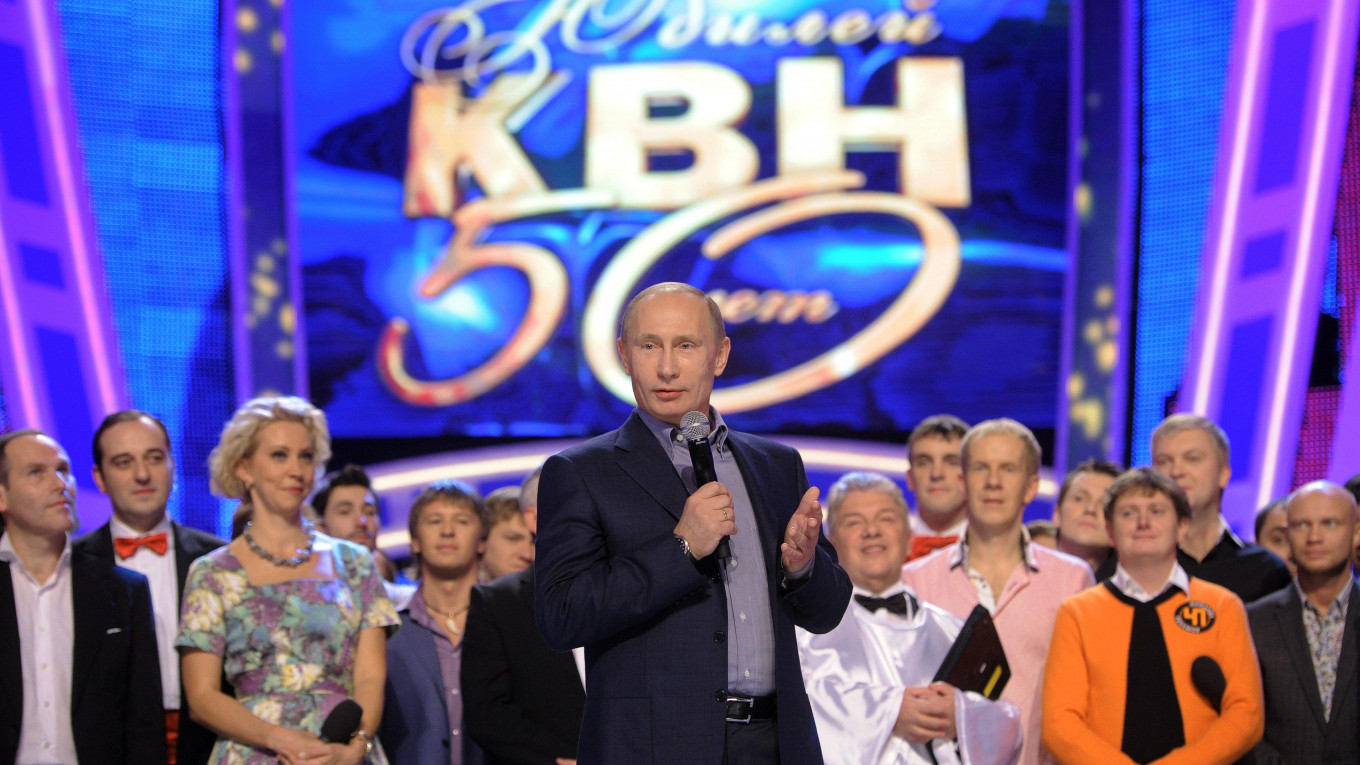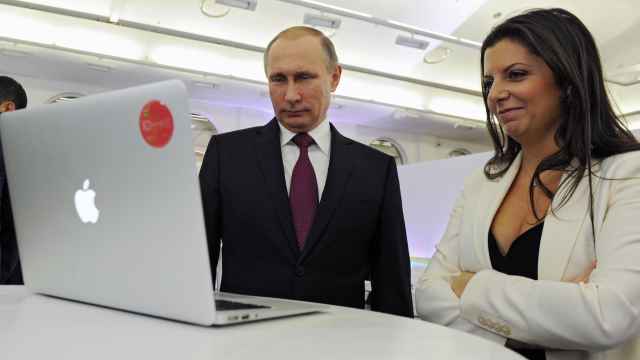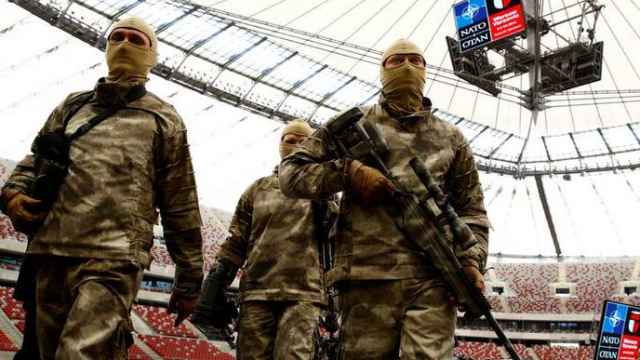Russia’s state-run TV network Channel One issued a mocking response to a NATO effort to analyze comedy shows on Russian television as examples of “strategic communication,” a term often invoked as euphemism for propaganda.
One show, “KVN,” was singled out by NATO as an exemplar of state-run efforts to use comedy to manipulate public opinion.
At the Latvian Defense Ministry's request, six academic researchers prepared the report for NATO's Strategic Communications Center of Excellence. It will be presented formally on Friday, but the full text is now available online, and its release on Wednesday prompted ridicule in Moscow.
“We read it. We laughed,” an unidentified spokesperson for Channel One told the RBC news agency.
KVN, a Russian acronym for “Club for the Cheerful and Quick-Witted,” is a national comedy talent show that emerged in the 1960s. The host, Alexander Maslyakov, is one of the most recognizable figures on Russian television. He's also said to be close with President Vladimir Putin, who has appeared on KVN.
The NATO report describes KVN as “a fundamental part of the ecosystem of Russian humor.” Many writers and participants from KVN have gone on to lead offshoots of the program.
“The structure of these shows is distinguished by its hybridity,” the report says, “which allows the inclusion of different types of humor in a combination of soft news and entertainment content.”
Often, NATO's researchers found, jokes about foreign leaders and current events are used as a backhanded way of reinforcing Kremlin messaging to its domestic audience. The vast majority of Russians get their information solely from state-run television.
A Message from The Moscow Times:
Dear readers,
We are facing unprecedented challenges. Russia's Prosecutor General's Office has designated The Moscow Times as an "undesirable" organization, criminalizing our work and putting our staff at risk of prosecution. This follows our earlier unjust labeling as a "foreign agent."
These actions are direct attempts to silence independent journalism in Russia. The authorities claim our work "discredits the decisions of the Russian leadership." We see things differently: we strive to provide accurate, unbiased reporting on Russia.
We, the journalists of The Moscow Times, refuse to be silenced. But to continue our work, we need your help.
Your support, no matter how small, makes a world of difference. If you can, please support us monthly starting from just $2. It's quick to set up, and every contribution makes a significant impact.
By supporting The Moscow Times, you're defending open, independent journalism in the face of repression. Thank you for standing with us.
Remind me later.






